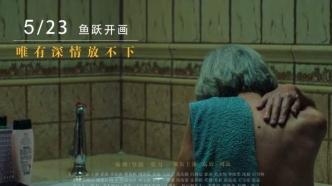
In the severe cold of ice and snow, an eighty-year-old woman's obsession with "bathing" connects the history and present of a contemporary family, as well as the crises faced by a middle-aged man.
The literary drama film "Fish Under the Ice", written, directed and produced by Zhang Li, was released nationwide on May 23. "Fish Under the Ice" focuses on the story of an ordinary family in an old industrial city in Northeast China during the seven days before the start of winter fishing.
A few years after her husband's death, 82-year-old Zhao Lihua (played by Gao Fang) suffered from mild depression. She tried to take a bath in the staff bath, but was turned away and humiliated several times. His son Zhu Hongbing (played by Zhou Bo) struggled to find two women to accompany his mother in the bath. A seemingly simple daily life requirement turned out to be extremely difficult for the mother and son. For Zhao Lihua, "taking a bath" is a form of self-cleansing like baptism, and leaving with dignity and "peace" is her last choice.
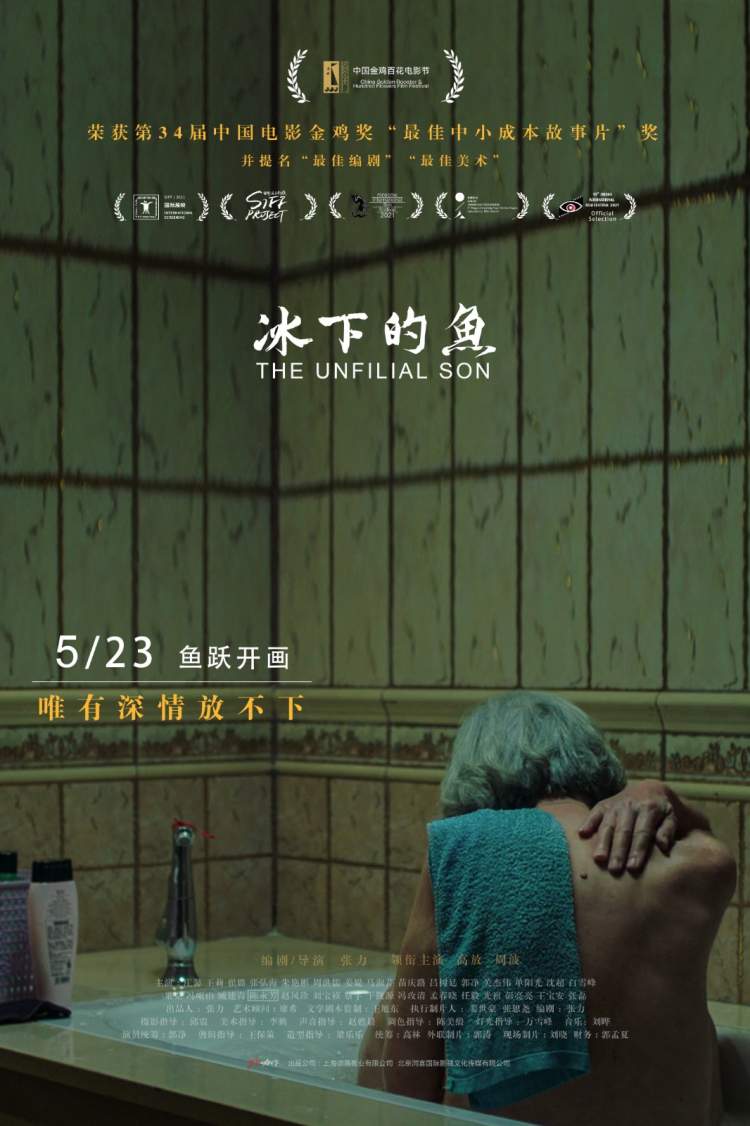
"Fish Under the Ice" poster
The plot seems to revolve around the old mother, but more conflicts are intertwined with the middle-aged son. Zhu Hongbing, played by Zhou Bo, is a middle-aged man who is both old and young. In solving the bathing problem for his mother, he faces career bottlenecks, crises in the family, conflicts between mother-in-law and daughter-in-law, marriage crises, and embarrassing changes in physiological functions. The real pressure of spending money to buy a house for his son in Beijing...everything is tearing at the bottom line of a man's dignity.
Director Zhang Li uses the image of "fish under the ice" to represent a trapped state of life. In order to shoot a long shot of a fish leaping through an ice hole, the crew bought 76 "fish actors" and ate fish for every meal for a whole week.
"Fish Under the Ice" is full of the director's intense life experiences and thoughts on life. The starting point of the film was that after his father passed away, he wanted to make a movie dedicated to his father.
Zhang Li grew up in Qiqihar, an industrial city in Northeast China. Because his father was the director of the Cultural Palace, he had the opportunity to be exposed to movies early. Spending time in the screening hall of the Cultural Palace gave him a childhood like a "Cinema Paradiso". But it wasn't until he was 38 that he began to follow his dream and become a director.
In the more than ten years he has been in the industry, he has made many genre films, which were not very expensive and of poor quality. "Fish Under the Ice" is his first "self-facing" film.
The dilemma of old age and the crisis of midlife are intertwined in the fragile moments of life. "When we were born, we were taught by countless people how to grow up, but no one ever taught us how to grow old." Zhang Li told a unique story about the last journey of life.
"Fish Under the Ice" won the "Best Small and Medium-Cost Feature Film" award at the 34th China Golden Rooster Awards, and was nominated for many awards such as Best Screenplay and Best Art. During the film's release, director Zhang Li told us about his past with his family and the film.

Director Zhang Zhang of "Fish Under the Ice"
[The following is director Zhang Li’s self-report]
38 years old embrace movie
In 2016, my father passed away on the second day of the Lunar New Year.
I sent my family away that night and spent the night in the morgue with him. It was a very new hospital, and I was the only living person on the second underground floor. I sat there chatting with my father all night, not afraid at all. We fathers and sons in the Northeast usually have a strong sense of distance. My father is very dignified and we are very silent between each other.
My father is the director of the Cultural Palace. He took me to work since I was a child, and I had the opportunity to watch many movies. The place where my father worked was an artistic environment for me as a child. The place where I go to school is very close to his workplace. Every day after school, I would go to the Cultural Palace to find him.
My father was busy at work, so he often put me in the projection room of the cinema. The uncle who was in charge of the projection would give me a bag of melon seeds and let me watch the movie through the projection hole. I would eat the melon seeds while looking at the world projected by the light. , I spent countless afternoons and nights. My uncle sometimes even allowed me to go into the screening room and watch them operate the projector. It was then that my interest in film gradually developed.
The movies screened at that time were roughly divided into two categories. One was old movies from the 1950s and 1960s or even earlier, such as "A River of Spring Flows East"; the other was newly released domestic movies, such as "The Guns of the Secret Service". "Voice" type of spy movie. There are also trendy foreign translated films and Chaplin's silent films that have a great influence on me. It turns out that the pictures in movies can transcend the boundaries of language.
What I remember particularly clearly is that at that time, there was a concept called "looping to clear the scene." If you buy a ticket, you can stay there forever, watch one movie after another, and watch it many times. I often stay in the cinema all day long, and I can watch the same movie several times tirelessly. For example, Ken Takakura's "Pursuit" is so familiar that I can memorize every line. Sometimes a science and education film will be played before the movie, telling about seed development, factory internship, etc., which also gave me a more comprehensive understanding of the movie.
But at that time, I didn’t know that making movies could be a job. Movies were a very distant world to me. Later, I was admitted to the Chinese Department, worked as a teacher, and worked as a secretary in an agency, and then went into business, working in media and commerce. Until I was 38 years old, I found that I still had a film dream that had not been realized, so I went to film school to further my studies. Director for a year.
I was a half-way monk, I didn’t know many people in the circle, and I was not an academic. I was confident in my literary literacy and had sufficient knowledge of life, but at that time I was already middle-aged.
I have made many movies over the years. From 2006 to 2016, I made about 10 film and television dramas in the past 10 years, but they were all small genre films, including thrillers, suspense films, and some channel themes and industry themes... They were all very small-scale productions, and the market response was not good. This is my actual situation. I am the kind of "professional" director who has been trained through this kind of hard work.
That night I told my father that you led me down this road, and I must make a movie dedicated to you.
The movie I wanted to dedicate to my father was my first "self-facing" creation. It took nearly 8 years from 2016 to 2024. Over the past eight years, I have gradually established a relatively mature view of movies, and I have become more clear about the kind of movies I want to make.
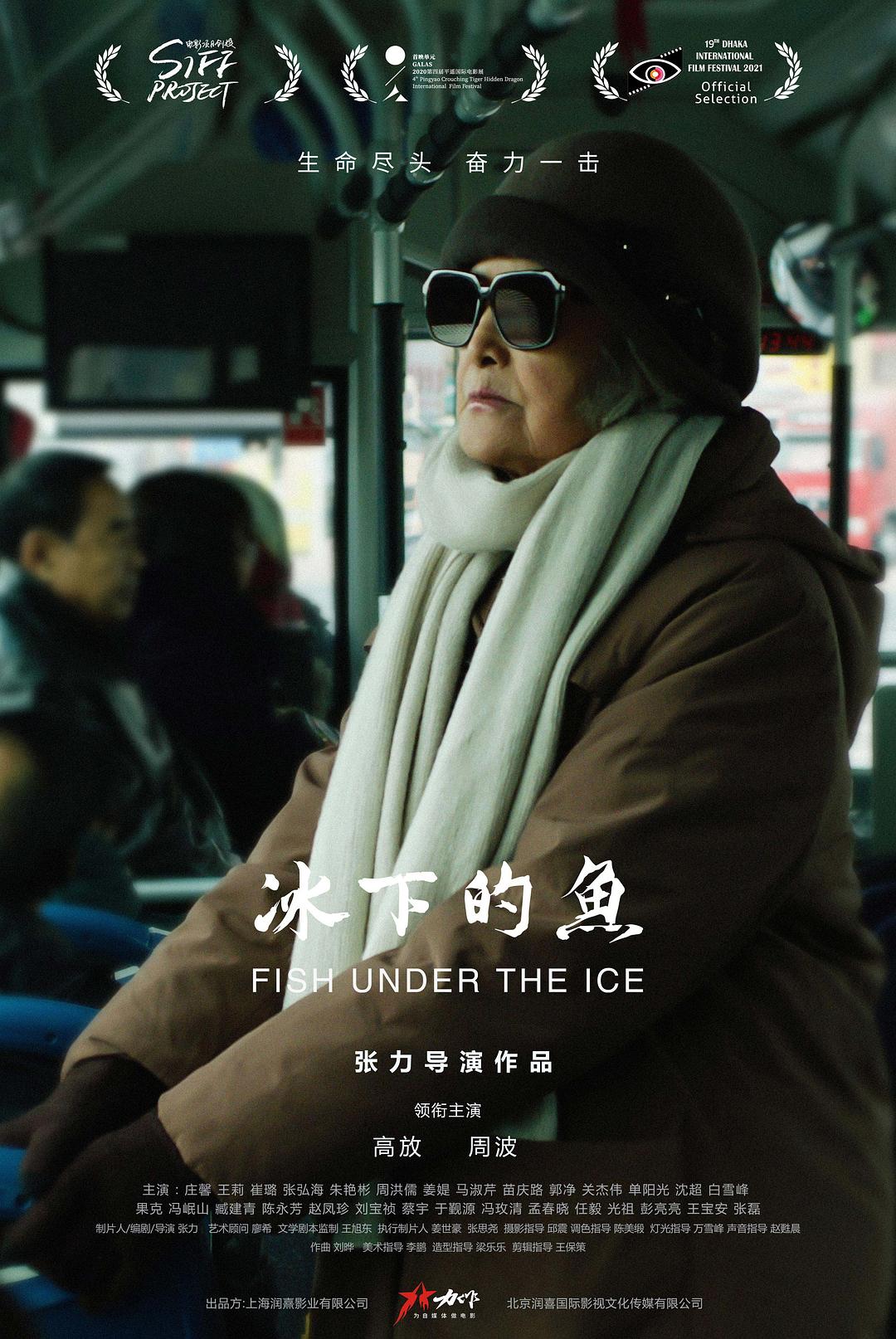
"Fish Under the Ice" poster
A profound Northeastern story
An old Northeastern woman had to go to a bathhouse to take a bath, but due to various regulations, she just couldn't get in. Her son had to go to great lengths to help her do it. From a story point of view, this is indeed a particularly twisted thing. It sounds quite darkly humorous. This entry point can give rise to many story possibilities. The current shooting method has been opposed by many friends.
The most profound memory I had was when I had dinner with several authors from Hong Kong and Taiwan. After hearing my story, they were very interested and suggested that it should be turned into a Northeastern comedy. I knew there was a basis for turning it into a comedy, but I thought about it for a long time and felt something was wrong.
I'm thinking about what I want to do. After much deliberation, I still want to express something deeper, rather than making an entertainment product for public consumption. So I deliberately maintained vigilance and distance when talking to everyone. I'm afraid that other people's ideas will affect or mislead me, so I'm very cautious when looking for investments. Many investors recognized the core of the story but wanted a more commercial spin on the package. But I believe that after that kind of packaging, the film will no longer be sharp and angular, and it will no longer sting the audience.
For about a year or two, I was writing scripts and conceiving ideas, and then gradually closed myself off. In order to ensure that my ideas were fully realized, I simply stopped contacting the outside world. Later, I started investing on my own.
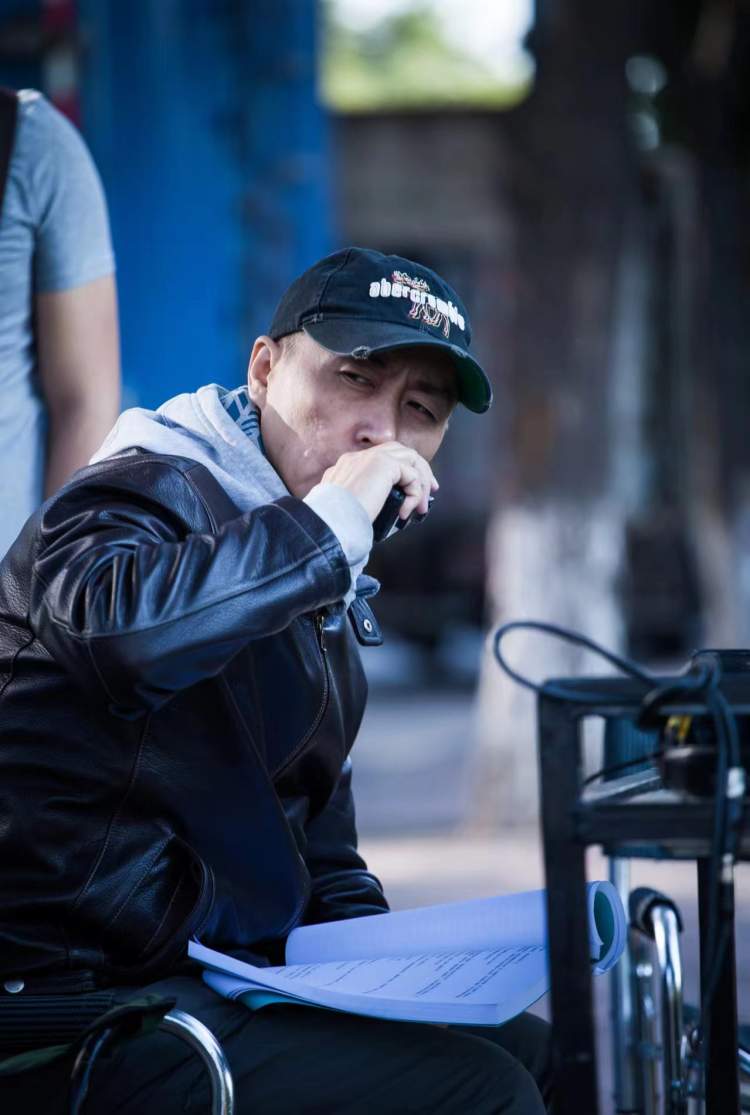
Zhang Li on the set of "Fish Under the Ice"
The spiritual temperament of Northeastern themes is reflected in a level of reflection and root-seeking. This was once the economic pillar of New China, the so-called "eldest son", who supported our country from birth to development for a long time. After the institutional reform and industrial adjustment, it failed to keep up and fell behind the times. Therefore, the background of Northeastern people is contradictory. On the one hand, they have an inexplicable sense of pride and want to save face. The long-term industrial civilization has formed an inertia. At the same time, they are declining, depressed, and helpless, so I The movie may be more reflective of this kind of person's state.
It applies to specific characters, such as Zhao Lihua, played by Gao Fang, who was once a teacher at a staff school of a large enterprise and the host of a literary group. She experienced the development of the enterprise from glory to decline, and her life went from youth to adulthood. Then the loneliness in later years is the same as that in the city. So her persistence in going to that bathhouse is because only here can she find her youth memories, and even love and friendship.
There is a saying in philosophy called "meaningful others". How do people prove that they exist, that they are alive, and that they are free? They need the existence of those "meaningful others" to reflect their own existence. Once this place rejected her, she became an island and an insulated person. There are many elderly people like this in the Northeast. They have lived a collective life since they were young, but as they grow older, they have less and less contact with each other. Some have moved south with their children, and some have gradually passed away, leaving them all isolated. people.
So Zhao Lihua wants to take a shower to prove that she exists, is alive, and can freely go where she wants to go. This is her dignity.
The son's generation is in a predicament of middle-aged people, and represents a very common typical representative of middle-aged people - they are being eliminated by society, constantly marginalized in the workplace, young people are catching up from behind, and society recognizes them less and less. ; The conflict between the old mother and her daughter-in-law in the family continues to intensify; in order to buy a house for her son, she separated from her daughter-in-law. The son needs his help and support to buy a house in Beijing and start a new life. Therefore, squeezing up and down creates a constant anxiety and dilemma for middle-aged people.
Meet mother again
The inspiration for the character Zhao Lihua began with my mother. My mother is very short, just over 1.5 meters tall. She is also a teacher and loves to wear skirts. Even in winter, she would wear a thick knitted woolen skirt, a woolen coat, and a top hat. I designed the external image of Teacher Gao Fang based on my impression of my mother in my memory.
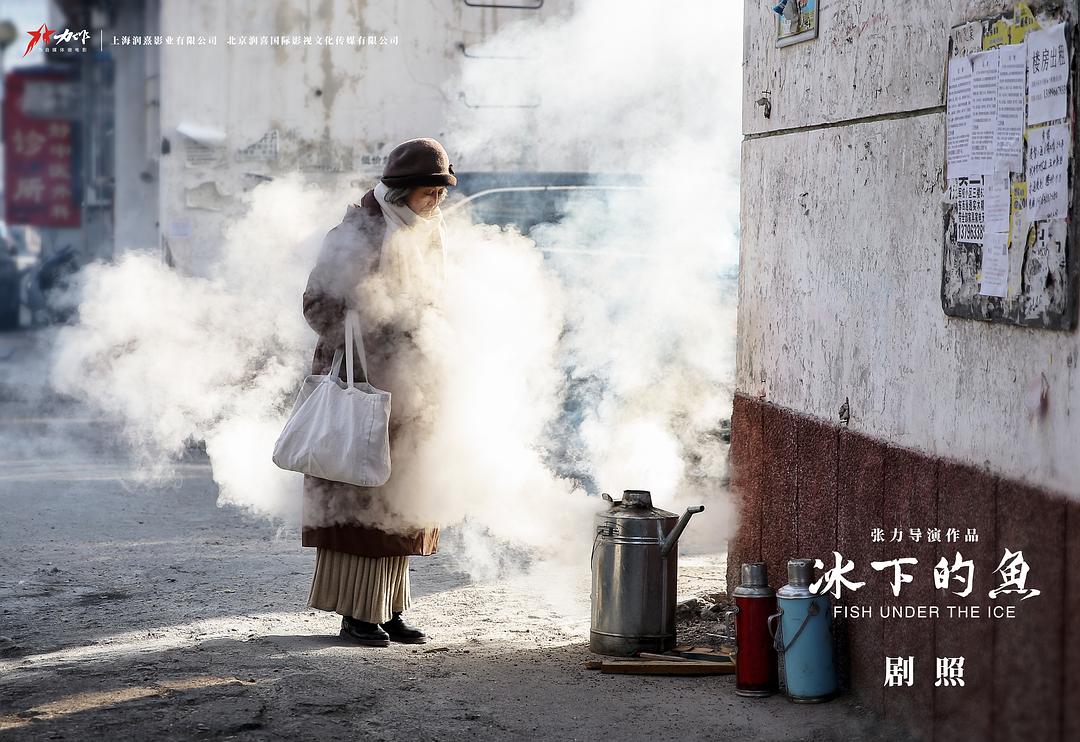
Stills from "Fish Under the Ice"
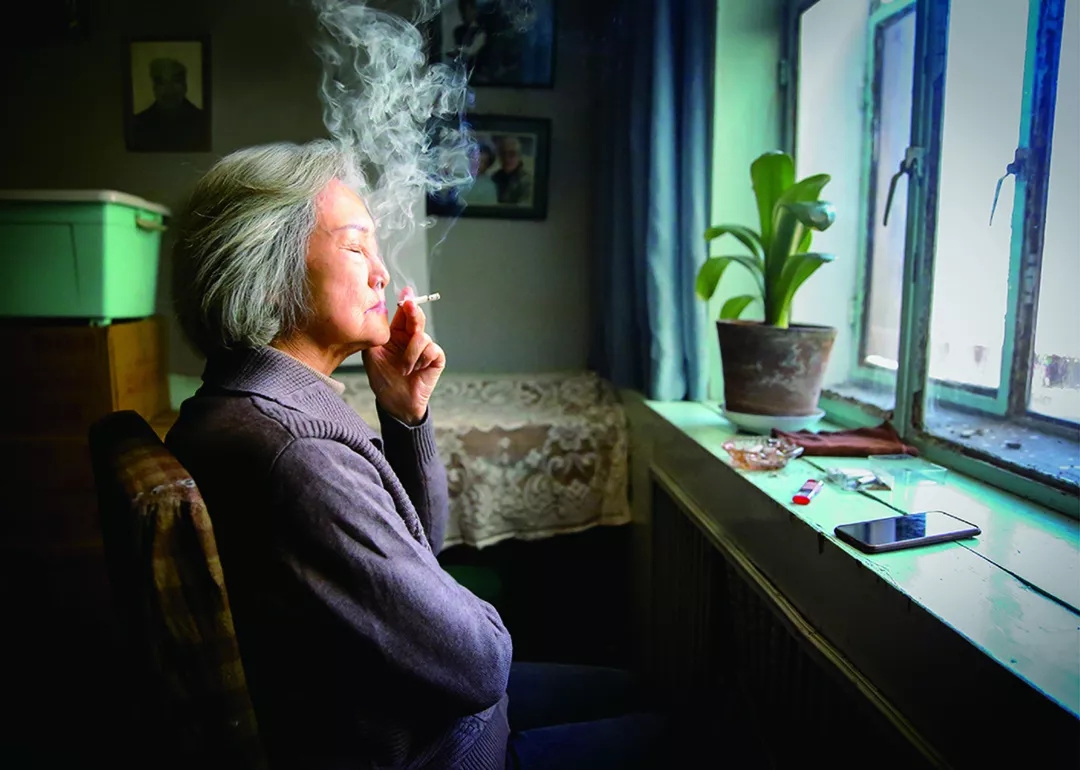
Stills from "Fish Under the Ice"
At the same time, Zhao Lihua has a lot of smoking scenes in the film, and there are even scenes where her body is exposed. Playing such a role requires a lot of effort. It is not easy to find such a person. During the casting process, we talked about a lot of older female actors. Some of them were unable to go to the cold Northeast to film due to physical reasons; some had concerns because of some scenes; and some I really wanted to come, but there was a schedule conflict due to filming.
Teacher Gao was very excited after seeing the script. She said she had been waiting for such a role for many, many years. Over the years, she has played many roles, all of which are facial expressions of grandmothers. She is particularly passionate about creating such rich elderly women. On the day she came to the company, she sat across from me, with the backlight on me. As a professional actress, she is also sensitive to light. Knowing that I couldn't see her clearly against the backlight, I turned sideways intentionally. Seeing the firm contours and edges on her face, including the silver hair, I immediately felt that this was the Zhao Lihua I was looking for.
The old lady in the movie is a "smoker". Teacher Gao said before that he has principles and will never smoke in his life, and refuses any scenes that require him to smoke. But this time she even took the initiative to cut off the filter tips of the cigarette to show that the character was even more addicted to smoking.
She is allergic to smoke. If she smokes a lot, she will get red pimples on her body, and she has to overcome tears during filming. She didn't say anything at all during the filming. In private, she would lift up her sleeves and show me the reaction on her skin. This is the style of an old artist, and I really saw it this time.
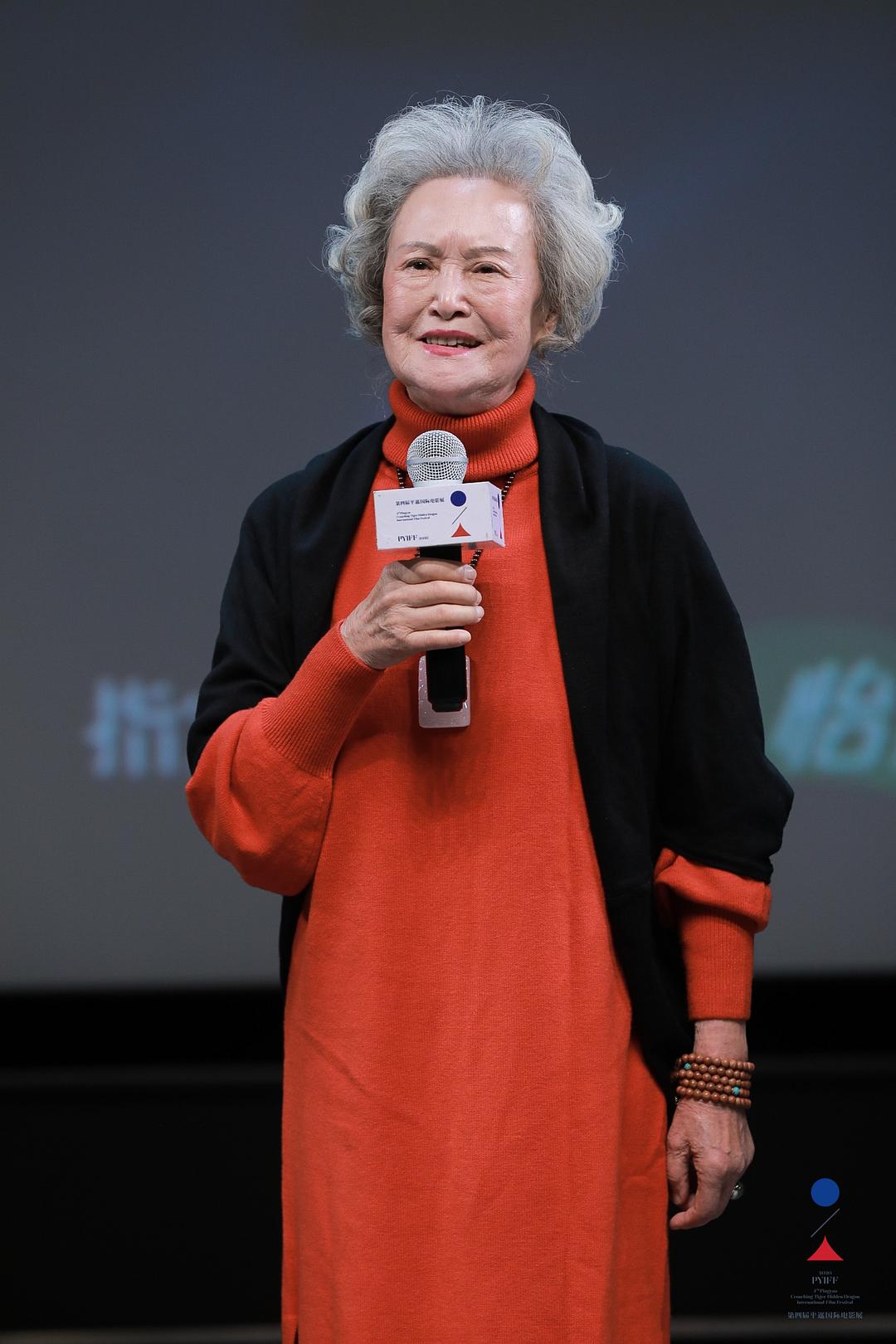
play high
Teacher Gao Fang also has a rule. In the past, the openings of clothes could not reach below the collarbone, but this time she even appeared naked in the movie.
I don’t think anyone wants to look at an old body and sagging skin. From a traditional perspective, it is not “beautiful”. But then we are modeling a mother. After we grow up, we actually never see our mother's body again. Mother and child were once connected, and the child was a piece of flesh on the mother's body. But after we become teenagers, we slowly distance ourselves from each other. Later, our eyes were filled with images of various graceful beauties, but we gradually forgot that our aging mother was once so beautiful. A mother goes from being young and beautiful to becoming old. The power of this body has a very strong impact on the audience.
So we asked the male protagonist to kneel next to his mother and rub her back. I told the actor that your psychological activity should be like this: when you see your mother’s old body, it’s like you see your own mother’s body. When you touch this warm, familiar yet unfamiliar body, you actually regain the feeling of being a child. Therefore, this scene is a kind of sacrifice for the actress, and it is also difficult for the actor. Faced with a female senior whom I admire and respect very much, how to perform this scene? Zhou Bo and I talked a lot.
I'm very happy that I filmed such a scene. This kind of experience did not happen in my actual life, and I also have many regrets about my mother who has passed away. All authorial expressions are redemption. This scene may be a redemption for me from my guilt towards my mother.

Stills from "Fish Under the Ice"
Except for the mother and son who are highlighted, some people in the movie have no faces. I already knew clearly at the script stage that different characters have different shooting methods. What kind of people are not photographed, what kind of people are shot from the side, and what kind of people are placed in the background and are out of focus. This kind of shooting treatment is for my son who is working hard in Beijing, because I don't want the audience to remember a face, but the audience will think about a generation because they don't remember a face. In our era, there is a generation of people in China who need to empty their wallets and rely on the help of their parents to survive in first-tier cities. There are also some people who do not need to participate in the lives of the characters. The participation of their voices is often more meaningful than the participation of their images, so they are handled in the form of voice-overs.
We shot the long shot of a fish jumping out of an ice hole at the beginning for three afternoons and bought 76 fish at the fish market. Because we didn’t have money for special effects, we could only use fishing lines to guide us and wait for the small chance of “lucky luck” to happen. We were a crew that hired our own chef, so for that scene, the whole crew ate fish for a week.

Stills from "Fish Under the Ice"
"Self-Media Movie"
After the filming of the movie was completed, the epidemic soon hit. The film industry has had a huge impact, cinemas have been closed for a long time, and traditional film distribution channels have been blocked. Everyone is full of pessimism about the future of cinemas. I began to think about how to allow audiences to still see my films under such circumstances. This question triggered my exploration of a new film distribution model. I locked myself in my room for a month and came up with an idea: film distribution through self-media, so that every viewer becomes a distributor of the film. I call it "self-media movie".
Specifically, this model is similar to how social media spreads. Viewers purchase the rights to watch my movie on the self-media platform. After watching the movie, they can share the movie with their friends. The friends purchase the rights to watch the movie through their links, and the sharer can also receive a portion of the commission. This method can not only expand the dissemination scope of the movie, but also encourage the audience to actively promote the movie.
To realize this idea, corresponding technical support is needed. I formed a technical team, hired many programmers, developed a complex programming system, and built a small program. This program not only has the function of watching and sharing movies, but also has the technology to prevent piracy and screen recording.
After the development was completed, we conducted a pilot promotion among friends and tried to continuously improve the model through their feedback. Friends have shown great interest in this novel model, and many are willing to try to be our publishers. We designed some incentive mechanisms to encourage them to actively promote the film.
However, as the epidemic worsened, this plan encountered more and more difficulties. Whether it's technology or money, this is unrealistic for our small team. Although this attempt was unsuccessful, it made me think about film distribution in a new way. In the future, with the development of technology and changes in audience habits, there may be more room for development of new models.
If possible, I certainly hope that the audience can see this film in the cinema. It is produced strictly in accordance with the film's specifications in terms of audio and visual.
During the road show, I traveled to different cities and movie theaters to communicate and interact with the audience. I felt extremely satisfied and fulfilled when I saw the audience's enthusiasm and sincere feedback.
During the road show, I visited many cities, including Harbin and Shenyang in the north, as well as Hangzhou, Ningbo, Chongqing, Chengdu and other places in the south. What makes me gratified is that audiences in both the South and the North have shown strong interest in and deep resonance with this film. I thought this story would be difficult to understand in the South where bathing culture is not popular, but many young viewers still shed tears after watching the movie. Some viewers said that the film reminded her of her father. Through this film, she re-recognized her father's inner world and understood his difficulties. These have made me more determined in my creative direction.
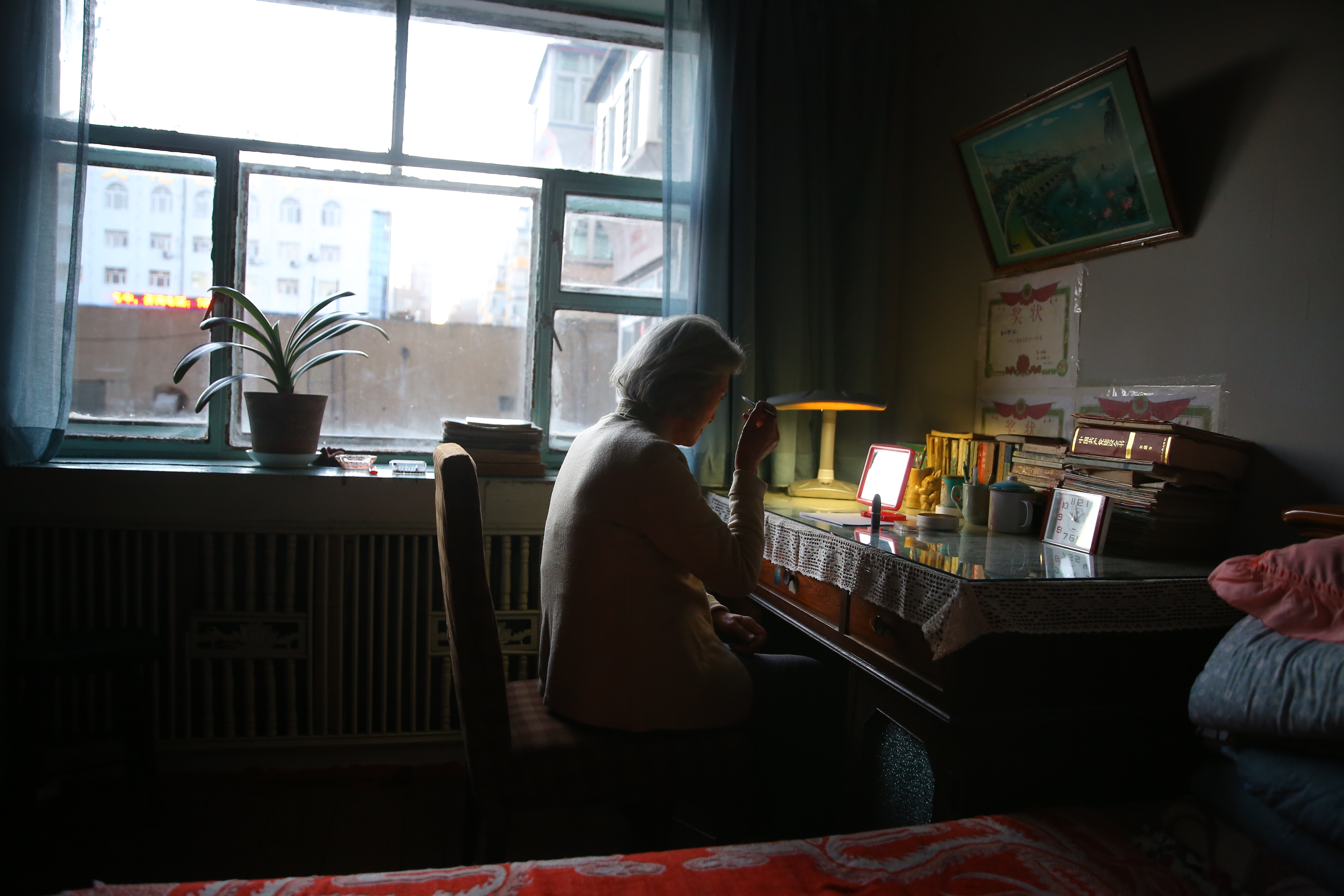
Stills from "Fish Under the Ice"
I know the difficulties of artistic films. Regardless of the market response, I firmly believe that this film is a work worthy of being seen and thought by the audience. It not only shows the unique culture and lifestyle of Northeast China, but also explores profound themes about human nature and life. I hope that this film can trigger the audience to think about life and human nature, and I also hope that it will achieve good results in the Chinese film market, because market feedback is related to the future of this type of film creation.
I hope that I can become an author-type film director who needs to express my own stories and ideas, but I will not do this kind of purely artistic exploration. "Fish Under the Ice" will be the first part of a "Northeast Trilogy" that I constructed. There will be two more movies in the future, both taking place in the background of industrial cities in the Northeast.


